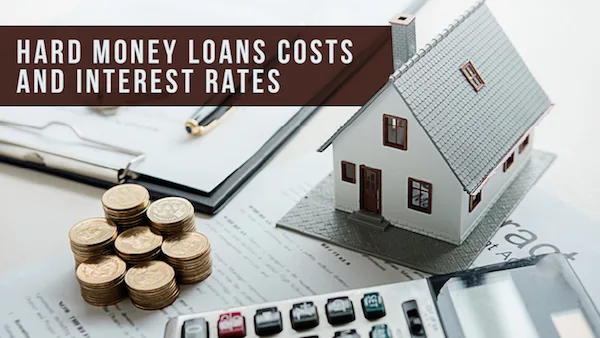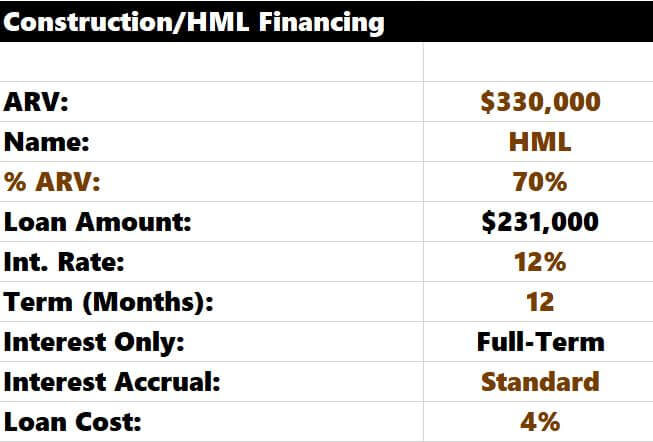In the world of real estate financing, hard money loans have gained popularity for their flexible lending terms and quick access to funds. However, one crucial aspect that borrowers often consider is the interest rates associated with these loans. Understanding the typical interest rates for hard money loans is essential for making informed financial decisions. This article provides a comprehensive overview of the interest rates commonly associated with hard money loans, shedding light on the factors that influence them and the potential implications for borrowers.
Factors that Influence Interest Rates
Credit Score
Your credit score plays a crucial role in determining the interest rate you’ll receive on a hard money loan. Lenders use your credit score to assess your creditworthiness and determine the level of risk associated with lending to you. Generally, borrowers with higher credit scores are considered less risky and may qualify for lower interest rates. On the other hand, if you have a poor credit score, the lender may charge you a higher interest rate to compensate for the increased risk.
Loan-to-Value Ratio
The loan-to-value (LTV) ratio is another factor that influences the interest rate on a hard money loan. The LTV ratio represents the ratio of the loan amount to the appraised value of the property you plan to purchase. A lower LTV ratio indicates a lower loan amount relative to the property value, which reduces the lender’s risk. In such cases, lenders may offer lower interest rates. Conversely, if the LTV ratio is high, the lender may charge a higher interest rate to mitigate the higher risk associated with the loan.
Experience and Track Record
Your experience and track record as a borrower can impact the interest rate you receive on a hard money loan. Lenders typically prefer borrowers who have a proven track record of successfully completing real estate projects. If you have a history of successful investments or a strong background in real estate, lenders may consider you a lower-risk borrower and offer you more favorable interest rates.
Property Type
The type of property you plan to purchase with a hard money loan can also influence the interest rate you’ll be charged. Generally, lenders view residential properties as less risky compared to commercial properties. As a result, you may qualify for lower interest rates when seeking a hard money loan for a residential property. However, if you are looking to finance a commercial property, you might face higher interest rates due to the increased risk associated with commercial ventures.
Market Conditions
The overall state of the real estate market can also impact the interest rates for hard money loans. During periods of economic stability and strong market conditions, lenders may offer lower interest rates to attract borrowers. On the other hand, during economic downturns or when the market is experiencing fluctuations, lenders may increase interest rates to compensate for the heightened risk. It is essential to keep an eye on the market conditions when considering a hard money loan, as it can directly influence the interest rate you’ll be offered.
Types of Hard Money Loans
Residential Hard Money Loans
Residential hard money loans are designed for individuals who wish to purchase or refinance residential properties. These properties may include single-family homes, townhouses, condos, or multi-unit properties with up to four units. Residential hard money loans provide quick access to funds for borrowers who may not qualify for traditional financing due to credit issues or the need for a faster approval process.
Commercial Hard Money Loans
Commercial hard money loans cater to borrowers who require financing for commercial properties such as office buildings, retail centers, warehouses, or industrial properties. Similar to residential hard money loans, commercial hard money loans provide an alternative funding option for borrowers who may have difficulty obtaining traditional bank financing. These loans are typically shorter-term and can be useful for investors aiming to purchase, renovate, or refinance commercial properties.
Fix and Flip Loans
Fix and flip loans are specifically designed for real estate investors who purchase properties with the intention of renovating them quickly and selling them for a profit. These loans provide the necessary funds to purchase the property, cover renovation costs, and carry the property until it is sold. Fix and flip loans often have shorter terms and higher interest rates to account for the quick turnaround time and potential risks associated with property rehabilitation projects.
Construction Loans
Construction loans are tailored for borrowers who plan to build or develop residential or commercial properties from the ground up. These loans finance the construction process, including land acquisition, architectural plans, materials, labor, and other associated costs. Construction loans typically involve a series of disbursements throughout the construction process, with the borrower paying interest only on the amount disbursed. Once the project is completed, the borrower can either sell the property, refinance, or convert the loan into a long-term mortgage.
Bridge Loans
Bridge loans are short-term loans that “bridge” the gap between the purchase of a new property and the sale of an existing property. These loans are commonly used by individuals or businesses in situations where they need immediate financing to secure a new property while waiting for the sale of their current property. Bridge loans can be beneficial when timing is crucial, as they provide borrowers with the necessary funds to make a property purchase before the sale of their existing property is finalized.
Average Interest Rates for Hard Money Loans
Residential Hard Money Loans
The average interest rates for residential hard money loans typically range from 7% to 12%. However, it is important to note that interest rates can vary based on a variety of factors, including the borrower’s credit score, loan-to-value ratio, and the specific terms and conditions offered by the lender. Borrowers with excellent credit scores and lower loan-to-value ratios are more likely to secure loans at the lower end of the interest rate range.
Commercial Hard Money Loans
Interest rates for commercial hard money loans tend to be slightly higher compared to residential loans. On average, borrowers can expect interest rates ranging from 8% to 14%. However, as with residential hard money loans, interest rates can vary based on factors such as the borrower’s creditworthiness, property type, and loan-to-value ratio.
Fix and Flip Loans
The interest rates for fix and flip loans are typically higher than those for other types of hard money loans. Investors looking to finance property rehabilitation projects should expect interest rates ranging from 10% to 18%. These higher rates reflect the increased risks associated with fix and flip loans, as the properties undergoing renovation may not have a stable market value or generate significant income until the renovations are complete.
Construction Loans
Construction loans often have higher interest rates than other types of hard money loans due to the complexity and potential risks of the construction process. Borrowers can expect interest rates ranging from 9% to 15% for construction loans. Factors such as the borrower’s experience, track record, and scope of the construction project can influence the interest rate within this range.
Bridge Loans
Bridge loans typically have higher interest rates compared to other hard money loans due to the short-term nature and the perceived higher risk involved. Interest rates for bridge loans usually range from 8% to 14%. Lenders charge higher interest rates to compensate for the expedited approval process and the need for quick access to funds, which is crucial in bridging the financial gap between buying and selling properties.
Range of Interest Rates for Hard Money Loans
Residential Hard Money Loans
The range of interest rates for residential hard money loans can vary depending on the borrower’s creditworthiness, loan-to-value ratio, and other factors. In general, borrowers can expect interest rates to fall within the range of 7% to 12%. However, borrowers with excellent credit scores and lower loan-to-value ratios may secure loans at the lower end of the range, while borrowers with higher risk profiles may face interest rates at the higher end.
Commercial Hard Money Loans
For commercial hard money loans, interest rates typically range from 8% to 14%. The specific interest rate within this range is influenced by factors such as the borrower’s creditworthiness, property type, loan-to-value ratio, and other risk factors. Commercial borrowers with a strong credit history and a lower loan-to-value ratio may be eligible for loans at the lower end of the range.
Fix and Flip Loans
The interest rates for fix and flip loans can be higher compared to other hard money loans due to the risks associated with property rehabilitation projects. Borrowers seeking fix and flip loans should expect interest rates ranging from 10% to 18%. The specific interest rate within this range can vary based on factors such as the property’s condition, expected renovation costs, and the borrower’s experience with similar projects.
Construction Loans
Interest rates for construction loans typically range from 9% to 15%. The specific interest rate within this range can be influenced by factors such as the borrower’s experience, scope of the construction project, and loan-to-value ratio. Borrowers with a successful track record in completing construction projects and a lower loan-to-value ratio may be able to secure loans at the lower end of the interest rate range.
Bridge Loans
Bridge loans generally have higher interest rates compared to other hard money loans due to the short-term nature and associated risks. Borrowers looking to bridge the financial gap between property purchases should expect interest rates ranging from 8% to 14%. The specific interest rate within this range may depend on factors such as the borrower’s creditworthiness, property values, and projected timing of the property sale.
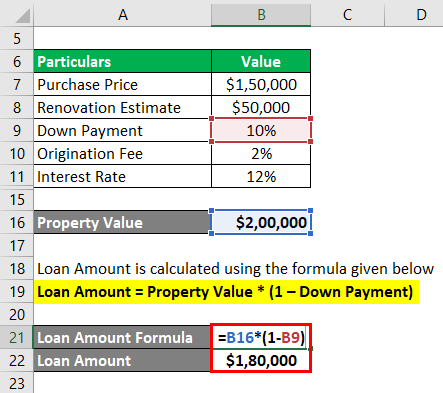
Factors that Determine Interest Rates
Lender’s Risk Assessment
The lender’s risk assessment plays a significant role in determining the interest rate for a hard money loan. Lenders consider several factors, including the borrower’s creditworthiness, loan-to-value ratio, experience, and track record. A borrower with a higher creditworthiness and a strong track record of successfully completing real estate projects is seen as less risky, resulting in a lower interest rate. Conversely, borrowers deemed to have higher risk profiles may face higher interest rates to offset the increased potential for default.
Loan Term
The loan term, or the duration of the loan, can impact the interest rate on a hard money loan. Typically, shorter-term loans have higher interest rates than longer-term loans. This is because the risk associated with shorter-term loans is often perceived as higher for lenders, who require a higher return on their investment in a shorter timeframe. Conversely, longer-term loans provide lenders with more extended periods to recoup their investment and may carry lower interest rates.
Lender’s Overhead Costs
Lenders incur various overhead costs, such as administrative expenses, underwriting fees, and operational costs. These costs are factored into the interest rate charged on hard money loans. Lenders with higher overhead costs may charge higher interest rates to cover their expenses and maintain profitability. Conversely, lenders with lower overhead costs may be more competitive in terms of interest rates, as they can afford to pass on some savings to borrowers.
Loan Amount
The loan amount can also influence the interest rate on a hard money loan. In general, larger loan amounts may be associated with higher interest rates. Lenders may charge higher interest rates for larger loans as the potential risk exposure for the lender increases with higher loan amounts. However, it is important to note that interest rates can still vary based on other factors, such as the borrower’s credit score, loan-to-value ratio, and specific terms and conditions offered by the lender.
How to Find the Best Interest Rates
Research Multiple Lenders
To find the best interest rates for hard money loans, it is essential to conduct thorough research and explore multiple lenders. Take the time to compare the interest rates offered by different lenders in your area or online. By obtaining quotes from multiple lenders, you can gain a better understanding of the rates available in the market and identify potential opportunities to secure a loan at a lower interest rate.
Consider Loan Terms and Fees
In addition to comparing interest rates, it is crucial to consider the overall loan terms and fees associated with different lenders. While interest rates are important, they should not be the sole factor influencing your decision. Examine the loan terms, repayment schedules, and any additional fees or charges involved. A loan with a slightly higher interest rate but more favorable terms and lower fees may be a better overall option for your specific financial needs.
Get Quotes and Compare
Obtaining quotes from different lenders is a crucial step in finding the best interest rates for hard money loans. Request quotes from several lenders and compare them side by side. Pay attention not only to the interest rates but also to other factors such as loan terms, fees, and any specific requirements or conditions. By carefully comparing the quotes, you can make an informed decision and choose a lender that offers the most advantageous combination of interest rate and overall terms.
Work with an Experienced Broker
Working with an experienced hard money loan broker can be beneficial when searching for the best interest rates. Brokers have extensive knowledge of the lending industry and can help connect borrowers with multiple lenders who specialize in hard money loans. By leveraging their expertise and network, brokers can assist borrowers in finding lenders that offer competitive interest rates and favorable loan terms. Additionally, brokers can negotiate with lenders on behalf of borrowers, potentially securing more favorable rates and terms.
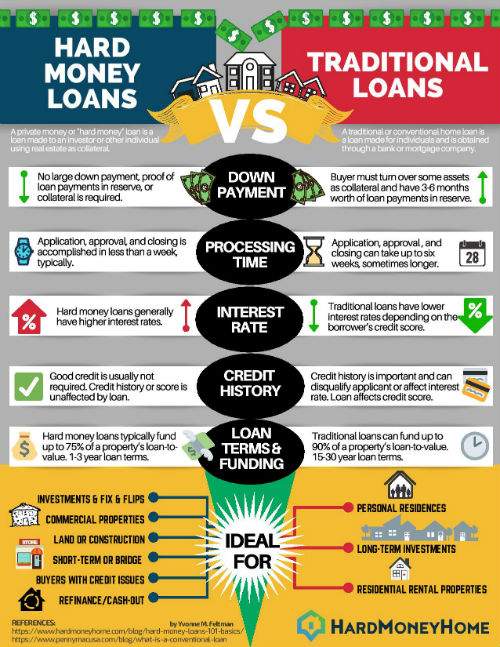
Tips for Negotiating Interest Rates
Have a Solid Business Plan or Project Proposal
When negotiating interest rates for hard money loans, it is important to present a solid business plan or project proposal to lenders. A well-prepared plan demonstrates your understanding of the investment opportunity and can instill confidence in lenders. By showcasing the potential profitability and viability of your project, you may be able to negotiate for lower interest rates.
Show Strong Collateral or Down Payment
Providing strong collateral or a significant down payment can enhance your negotiating position when discussing interest rates with lenders. Lenders feel more comfortable lending to borrowers who have substantial equity or assets to secure the loan. By offering a substantial down payment or valuable collateral, you may be able to negotiate lower interest rates as you are perceived as less of a risk to the lender.
Maintain Good Communication with Lenders
Open and transparent communication with lenders is essential when negotiating interest rates. Regularly update lenders on the progress of your project or investment and be proactive in addressing any potential concerns they may have. Building a strong rapport and demonstrating your commitment to the project can contribute to a positive negotiating experience and potentially lead to more favorable interest rates.
Demonstrate a Successful Track Record
If you have a successful track record in real estate investments or previous projects, highlight these achievements when negotiating interest rates. Lenders often consider a borrower’s experience and past performance when determining the level of risk associated with a loan. By showcasing your successful track record, lenders may view you as a low-risk borrower and offer you more competitive interest rates.
Be Flexible with Loan Terms
Demonstrating flexibility with loan terms can be advantageous when negotiating interest rates. Lenders appreciate borrowers who are willing to work collaboratively to find mutually beneficial terms. Consider discussing options such as adjusting the loan term, increasing the down payment, or offering additional collateral to potentially secure a lower interest rate. Flexibility and cooperation can contribute to a successful negotiation process.
Common Misconceptions about Hard Money Loan Interest Rates
Higher Interest Rates Always Mean Higher Costs
One common misconception is that higher interest rates always translate to higher costs for hard money loans. While it is true that higher interest rates result in higher monthly payments, other factors such as loan terms, fees, and the specific financial requirements of the project can influence the overall cost. It is essential to consider the entire loan package, including interest rate, loan term, and fees, to accurately assess the total cost of the loan.
Hard Money Loans are Always Expensive
Another misconception is that hard money loans are always expensive due to their higher interest rates. While hard money loans generally carry higher interest rates compared to traditional bank loans, they serve a different purpose and provide unique benefits. Hard money loans offer quick access to funds, flexible eligibility requirements, and a faster approval process. For borrowers who need immediate financing or may not qualify for traditional bank loans, hard money loans can be a valuable funding option.
Interest Rates Reflect the Lender’s Trust in the Borrower
Some borrowers mistakenly believe that interest rates on hard money loans directly reflect the lender’s trust in their ability to repay the loan. While the lender’s risk assessment does play a role in determining interest rates, other factors such as market conditions, loan terms, and the borrower’s financial situation also influence the final interest rate. It is essential to understand that interest rates are determined through a comprehensive assessment of multiple factors and are not solely based on the lender’s trust.
Interest Rates Don’t Change Based on Market Conditions
Contrary to popular belief, interest rates for hard money loans can change based on market conditions. Just like traditional mortgage rates, hard money loan interest rates are influenced by the overall state of the real estate market. During periods of economic stability and strong market conditions, lenders may offer lower interest rates to attract borrowers. However, during economic downturns or when the market is experiencing fluctuations, lenders may increase interest rates to mitigate the potential risks associated with lending.
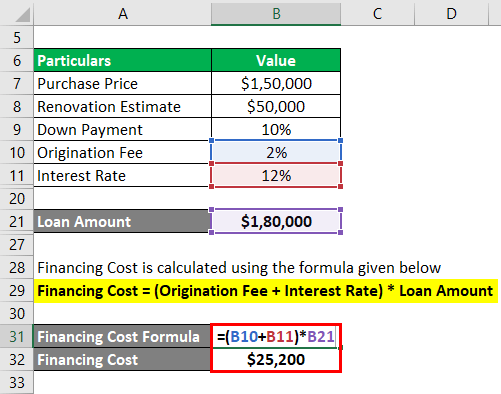
Benefits and Drawbacks of Hard Money Loan Interest Rates
Benefits
Hard money loan interest rates offer several benefits to borrowers:
-
Quick Access to Funds: Hard money loans provide borrowers with fast access to funds, allowing them to seize investment opportunities quickly. Traditional bank loans often involve lengthy approval processes, which may cause borrowers to miss out on time-sensitive deals.
-
Flexible Eligibility Requirements: Hard money loans have more flexible eligibility requirements compared to traditional bank loans. Borrowers with credit issues or unique financial situations may still qualify for a hard money loan, making it a viable option for a broader range of borrowers.
-
Faster Approval Process: Hard money loans typically have a faster approval process compared to traditional bank loans. This expedited process can be advantageous when immediate financing is needed or when time is critical to secure a property or investment opportunity.
Drawbacks
On the other hand, there are drawbacks associated with hard money loan interest rates:
-
Higher Interest Rates: Hard money loans generally carry higher interest rates compared to traditional bank loans. This can lead to higher monthly payments and increased overall costs, impacting the borrower’s profitability and return on investment.
-
Shorter Loan Terms: Hard money loans often come with shorter loan terms, typically ranging from six months to a few years. This shorter repayment period may result in higher monthly payments, as the principal must be repaid within a compressed timeframe.
-
Potential for Higher Fees: In addition to higher interest rates, hard money loans may involve higher fees compared to traditional bank loans. Borrowers should carefully review the loan terms and fee structures to assess the total cost of the loan.
Conclusion
When considering a hard money loan, it is crucial to understand the factors that influence interest rates and the different types of hard money loans available. Factors such as credit score, loan-to-value ratio, experience, and property type can all impact the interest rate you’ll receive. By researching and comparing multiple lenders, considering loan terms and fees, and working with an experienced broker, you can find the best interest rates for your specific needs.
While hard money loan interest rates are generally higher than traditional bank loan rates, they offer unique benefits such as quick access to funds, flexible eligibility requirements, and a faster approval process. However, borrowers should be aware of the potential drawbacks, including higher interest rates, shorter loan terms, and possible higher fees.
By having a solid understanding of hard money loan interest rates and their implications, you can make informed decisions and navigate the lending landscape effectively. Whether you’re a real estate investor, developer, or business owner, hard money loans can provide the financial support necessary to seize opportunities and achieve your goals.
